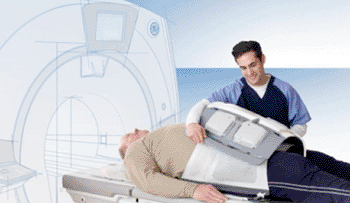MR Radiation Oncology Suite Provides Consistent Patient Positioning, Effectively Characterizes Cancer
By MedImaging International staff writers
Posted on 20 Feb 2014
A magnetic resonance imaging (MRI) radiation oncology suite provides the tools designed to help better target and treat tumors through consistent patient positioning.Posted on 20 Feb 2014
When combined with the advanced capabilities of wide-bore magnetic resonance imaging, GE Healthcare’s (Chalfont St. Giles UK) MR radiation oncology suite may help clinicians more effectively characterize disease, plan radiotherapy options, target tumors, preserve healthy tissue, and assess response to therapy. Moreover, it also helps minimize potential registration errors between MR and computed tomography (CT) within treatment plans.

Image: GE Healthcare’s MR radiation oncology suite (Photo courtesy of GE Healthcare).
GE Healthcare designed patient-positioning packages for a broad range of tumor treatments, including brain, head, and neck, prostate and gynecologic. These packages provide the freedom to purchase only what is needed now, providing the flexibility required to meet budgetary and clinical requirements.
Features of the suite include one-shot coverage, in that the user can visualize liver anatomy with a large detector, 41 x 41 cm; a three-step liver embolization guidance to improve patient outcomes, and an unmounted gantry providing excellent patient access and imaging positioning freedom.
Related Links:
GE Healthcare














